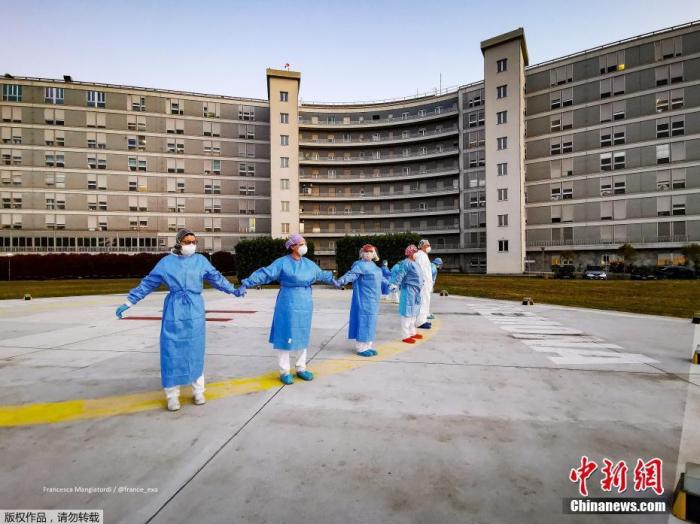China News Service, May 13 (Xinhua) According to the United Nations website, on the 12th local time, Ahmed Al-Mandhari, director of the WHO Regional Office for the Eastern Mediterranean, said that in the process of fighting the new crown epidemic, Frontline health workers have made great efforts. He thanked them and called for strengthening protection measures and increasing investment in the health workforce.
The World Health Organization reports that as of April 8, more than 22,000 medical personnel in 52 countries have been infected with the new coronavirus. In the Eastern Mediterranean region, the proportion of infected health workers ranges from 1% to 20%. Since there is no systematic report to WHO of infections by healthcare workers, the actual number of infected persons may be higher.
On April 6, local time, medical staff at a hospital in Cremona, Italy, held hands and expressed support and salute to the people affected by the new coronary pneumonia epidemic.
Mandari said that limited data showed that more than 90% of health workers were infected by being exposed to the virus in health facilities. The average age of health workers infected in the Eastern Mediterranean region is 35 years, and the infection rate for women is slightly higher than for men. Overall, the infection rate reported among nurses and physicians is higher than other occupations.
Mandari said the epidemic had a serious impact on the lives of frontline medical staff. Most of the nearly 50 million medical personnel worldwide are directly or indirectly involved in the fight against epidemics. The increase in workload of medical staff and the huge pressure they face have caused their working hours to prolong, resulting in psychological distress, fatigue and occupational burnout.
He said that the 12th was the International Nurses' Day. He expressed his gratitude to nurses and other health workers who sacrificed their efforts in the fight against the epidemic, and called for protection for those who continue to work tirelessly. In order to respond to the challenges faced by health workers, WHO has developed regional guidelines that define the strategic actions of national and its sub- and institutional decision makers and managers.
He pointed out that there is an urgent need to upgrade infection prevention and control measures; it must provide guidance, training, incentives and create a positive working environment; it must maintain their physical and mental health through psychosocial support and practical working hours. Most importantly, the current violence and stigmatization against medical personnel needs to be eliminated, and their efforts, dedication and achievements must be recognized and appreciated.

